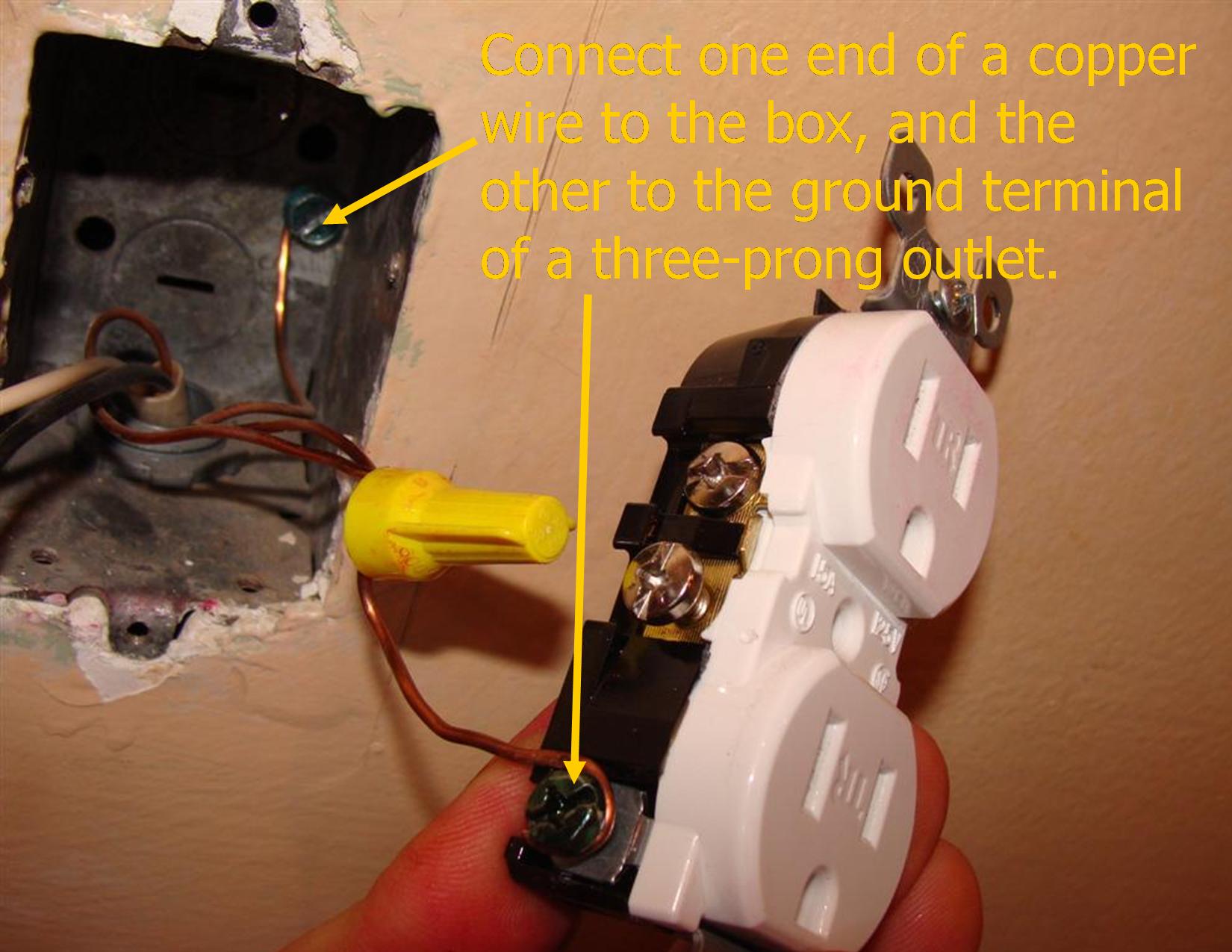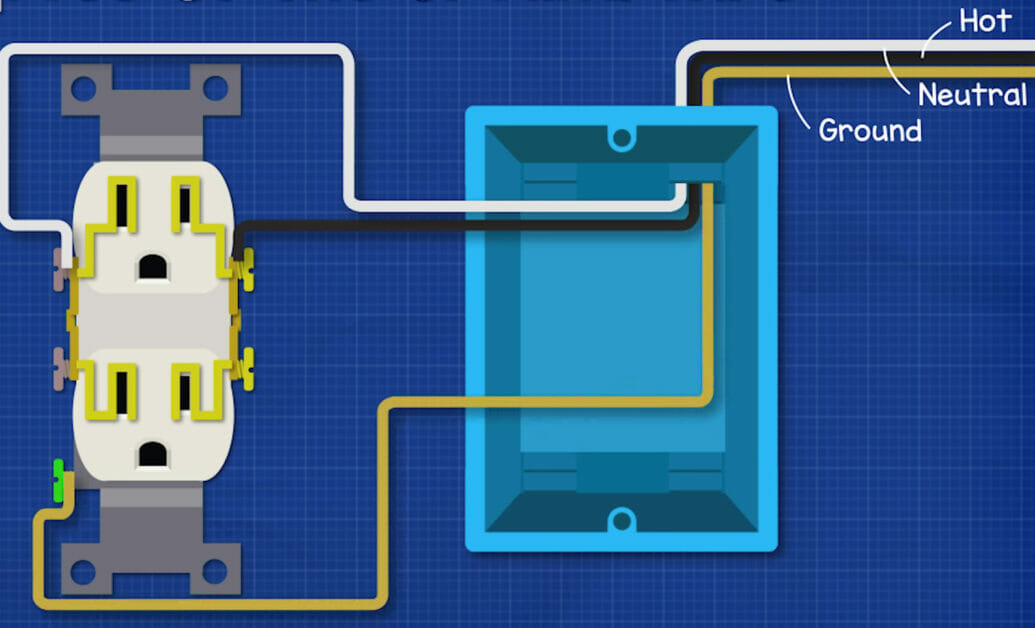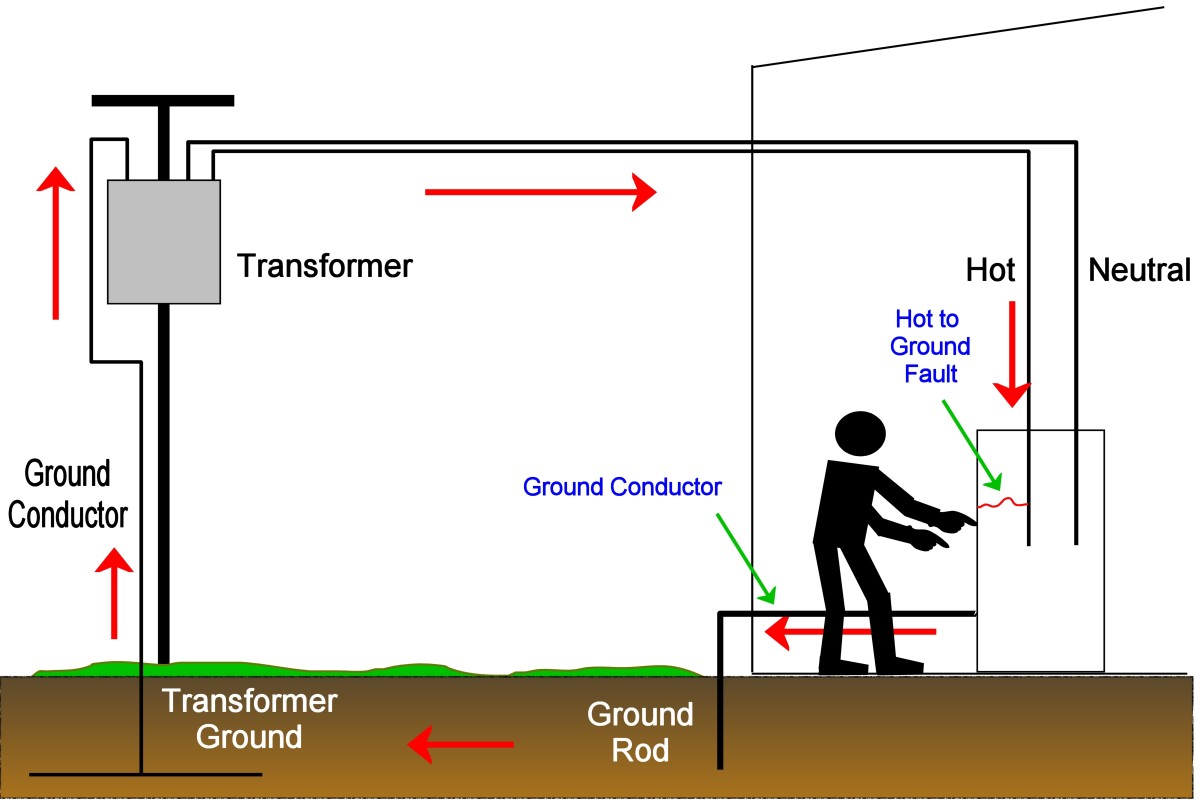One Of The Best Info About What Happens If An Outlet Is Not Grounded Properly

How To Check If Outlet Is Grounded
The Shocking Truth About Ungrounded Outlets — Seriously, It Could Hurt
1. Understanding Grounding
Ever wonder what that third hole in your electrical outlet is actually for? It's not just a spare, I promise! That's the grounding connection, and its purpose is to provide a safe path for electricity to flow in case of a fault. Think of it like a tiny electrical escape route, preventing dangerous voltage from building up on the metal casings of your appliances.
Without proper grounding, a short circuit could turn your toaster into a potential hazard, capable of delivering a nasty shock if you happen to touch it. It's like playing Russian roulette with household appliances, and nobody wants that! Think of it as an invisible safety net, always there, ready to catch you when things go electrically wrong.
Essentially, a properly grounded outlet is wired so that any stray electricity will harmlessly flow back to the electrical panel, tripping the circuit breaker or blowing a fuse. This immediately cuts off the power, preventing shocks and fires. It's like a superhero swoopng in to save the day — or at least prevent you from becoming a crispy critter.
So, grounding is important. Really important. It protects you, your family, and your home from electrical hazards. It's not just some electrical mumbo jumbo; it's a fundamental safety feature built into your home's electrical system. It's also surprisingly easy to get checked (more on that later!).

What Happens When Ground is MIA? — Brace Yourself
2. The Dark Side of Ungrounded Outlets
Okay, let's get down to brass tacks. What actually happens when an outlet isn't grounded properly? Well, imagine a scenario where a wire inside your washing machine comes loose and touches the metal frame. In a properly grounded system, that electricity would immediately find its way back to the panel, tripping the breaker. But without grounding? Uh oh.
Without a grounding path, that voltage might linger on the machine's surface, just waiting for you to touch it. When you do, you become the path of least resistance, and electricity flows through you to the ground. This can result in a potentially fatal electric shock. It's like becoming a human lightning rod — definitely not on anyone's bucket list.
Furthermore, ungrounded outlets are also more susceptible to power surges. Surges can fry your electronics, leading to expensive repairs or replacements. So, that fancy new TV you just bought? It could be toast (literally or figuratively!) in a lightning strike. It is like leaving expensive equipment to electrical monster that has not protection.
And here's a fun fact: appliances connected to ungrounded outlets tend to have a shorter lifespan. The electrical stress caused by surges and fluctuations can slowly damage their internal components, leading to premature failure. Think of it as slowly poisoning your appliances — not a good look.

Spotting the Problem — Are Your Outlets Plotting Against You?
3. Signs You Might Have an Ungrounded Outlet
How can you tell if your outlets are ungrounded? Unfortunately, it's not always obvious just by looking at them. However, there are a few telltale signs. First, if you live in an older home (pre-1960s), there's a good chance your wiring might not include grounding. Older homes were often wired with two-prong outlets, which lack the grounding connection entirely.
Another clue is frequent circuit breaker trips or blown fuses. While this can be caused by other issues, it could also indicate a problem with grounding. If you notice these things happening more often, get your electrical system checked.
You can purchase an outlet tester from most hardware stores. These testers are inexpensive and easy to use. Simply plug it into the outlet, and it will indicate whether the outlet is properly grounded. Keep in mind, these testers only check for basic wiring errors; they don't guarantee the entire circuit is safe.
If you're unsure, the best course of action is to call a qualified electrician. They can inspect your wiring and determine if your outlets are properly grounded. It's a small price to pay for peace of mind — and potentially your life!

How Much Does It Cost To Ground An Outlet (Guide)
The (Safe) Fix — Bringing Your Outlets Back to Earth
4. Solutions to Ungrounded Outlet Issues
So, you've discovered you have ungrounded outlets. Don't panic! There are several options for fixing the problem. The ideal solution is to rewire your home with grounded wiring. This involves running new wires from the electrical panel to each outlet, including a grounding wire. This is the most effective way to ensure your electrical system is safe and up to code, but it can also be the most expensive and disruptive.
If rewiring is not feasible, another option is to install GFCI (Ground Fault Circuit Interrupter) outlets. GFCI outlets are designed to detect even small imbalances in the electrical current and quickly cut off the power. While they don't actually ground the outlet, they provide a high level of protection against electric shock. These outlets look like regular outlets but have "test" and "reset" buttons on the front.
A third, less ideal, option is to simply replace ungrounded two-prong outlets with three-prong outlets without actually grounding them. This is a deceptive and potentially dangerous practice. While it might look like you have a grounded outlet, it's not actually providing any protection. Never do this without consulting with an electrician first — it's just asking for trouble!
No matter which solution you choose, it's essential to hire a qualified electrician to do the work. Electrical work can be dangerous, and it's not something you should attempt yourself unless you have the proper training and experience. It is better to pay someone than to put your own life at risk. If you need to get help from expert.

Open Ground Outlet Diagram
Safety First! — Preventing Electrical Mishaps
5. Tips for Electrical Safety in Your Home
Beyond grounding, there are many other things you can do to improve electrical safety in your home. Regularly inspect your electrical cords for damage. Frayed or cracked cords can be a fire hazard and should be replaced immediately. Don't overload your outlets. Plugging too many devices into a single outlet can overheat the wiring and cause a fire. Use power strips with surge protection to protect your electronics from power surges.
Never use electrical appliances near water. Water and electricity are a dangerous combination. Keep appliances like hair dryers and radios away from sinks, bathtubs, and showers. If an appliance falls into water, don't touch it! Immediately turn off the circuit breaker that controls that outlet.
Make sure your home has working smoke detectors and carbon monoxide detectors. These devices can alert you to potential fires or carbon monoxide leaks, giving you time to escape. Test your detectors regularly to ensure they're working properly.
And finally, if you're ever unsure about any electrical issue, don't hesitate to call a qualified electrician. It's always better to be safe than sorry when it comes to electricity. It is better to call an expert than make things worse.
